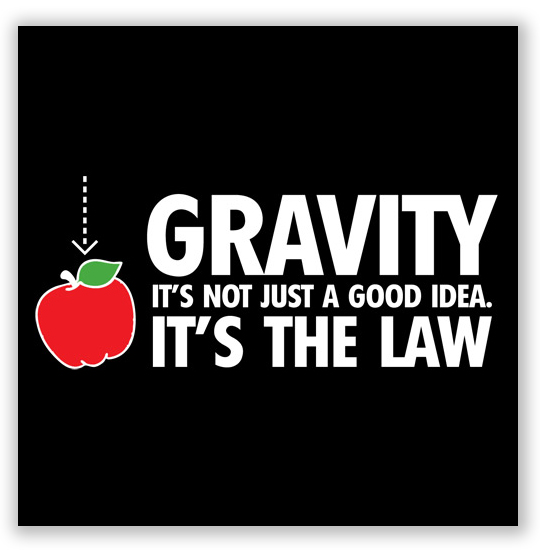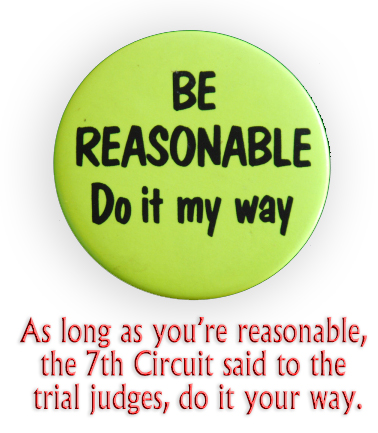We post news and comment on federal criminal justice issues, focused primarily on trial and post-conviction matters, legislative initiatives, and sentencing issues.
‘MAY’ DOES NOT MEAN ‘MUST’
There’s the old public service tagline about seat belts not just being a good idea, but being the law as well. It spawned more than one parody. But one kiddie-porn possession defendant learned last week that the meme does not have legs.
 The Circuits are strongly split over how to treat defendants subject to child porn Guidelines, which in the past 14 years have become draconian even by the normally harsh advisory Sentencing Guidelines. The 2nd Circuit started off the principled opposition to the stratospheric child porn sentencing ranges mandated by Congress in the 2010 case of United States v. Dorvee, holding that courts could pay little deference to child porn Guidelines because they were not set by the reasoned professional judgment of the Sentencing Commission, but instead by the political hacks in Congress. Two years later, the 6th Circuit ruled in United States v. Bistline that the fact that Congress told the Commission to set the ranges high meant the child porn guidelines were entitled to even more deference than the normal Guidelines.
The Circuits are strongly split over how to treat defendants subject to child porn Guidelines, which in the past 14 years have become draconian even by the normally harsh advisory Sentencing Guidelines. The 2nd Circuit started off the principled opposition to the stratospheric child porn sentencing ranges mandated by Congress in the 2010 case of United States v. Dorvee, holding that courts could pay little deference to child porn Guidelines because they were not set by the reasoned professional judgment of the Sentencing Commission, but instead by the political hacks in Congress. Two years later, the 6th Circuit ruled in United States v. Bistline that the fact that Congress told the Commission to set the ranges high meant the child porn guidelines were entitled to even more deference than the normal Guidelines.
 In 2014, the 7th Circuit held in United States v. Price that it agreed with Dorvee, and said a sentencing judge could vary downward because of policy differences with Congress. But last week, the Circuit reminded defendants that “while district courts may disagree with the Guidelines’ policies and impose a lower sentence, it is not true that they must” do so.
In 2014, the 7th Circuit held in United States v. Price that it agreed with Dorvee, and said a sentencing judge could vary downward because of policy differences with Congress. But last week, the Circuit reminded defendants that “while district courts may disagree with the Guidelines’ policies and impose a lower sentence, it is not true that they must” do so.
 Terry Obetz questioned the usefulness of the Guidelines in child pornography cases, because the Guidelines were shaped by Congress instead of sentencing experts, and thus lack a basis in empirical data. He argued that Price requires sentences in child pornography cases to fall below the Guidelines’ range in order to be reasonable.
Terry Obetz questioned the usefulness of the Guidelines in child pornography cases, because the Guidelines were shaped by Congress instead of sentencing experts, and thus lack a basis in empirical data. He argued that Price requires sentences in child pornography cases to fall below the Guidelines’ range in order to be reasonable.
The judge listened to Terry’s policy argument but was not convinced: after all, the judge said, Congress created the Sentencing Commission, and it was free to give the USSC “some direction” when it wanted to. After all, what is a sentence but a political expression of appropriate punishment.
The sentencing court knew it was not bound by the Guidelines, but the judge said he believed the Guidelines’ recommendation – even if it was authored by Congress (or maybe especially because it was authored by Congress) – was appropriate.
 On appeal, the 7th observed that the exercise of discretion shown by Terry’s judge was “exactly what the judge was supposed to do.” Just as the judge in Price exercised her discretion when she reasonably deviated down from the Guidelines on policy grounds, Terry’s judge exercised his discretion, too, when he reasonably chose not to do so.
On appeal, the 7th observed that the exercise of discretion shown by Terry’s judge was “exactly what the judge was supposed to do.” Just as the judge in Price exercised her discretion when she reasonably deviated down from the Guidelines on policy grounds, Terry’s judge exercised his discretion, too, when he reasonably chose not to do so.
Judges judge, the Circuit said. That’s what they do, and as long as they are reasonable about it, the Court of Appeals was not going to tell them differently.
United States v. Oberg, Case No. 17-1546 (7th Cir. Dec. 1, 2017)
– Thomas L. Root

